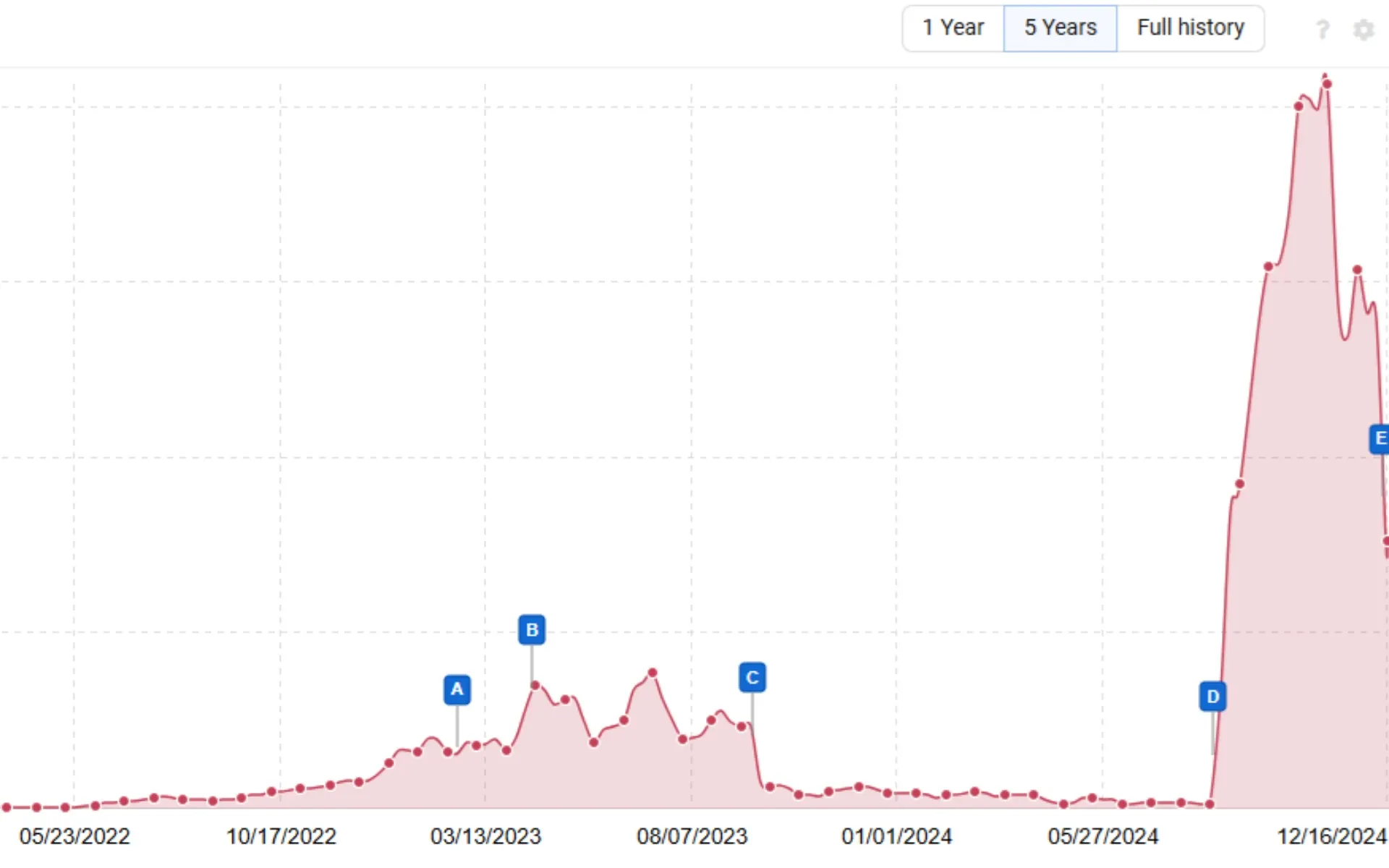December Google update reverses gains from previous algorithm changes
Latest search engine changes wipe out traffic recoveries, leaving digital publishers questioning viability of operations.

According to industry experts and publisher reports from December 2023, Google's latest core update is systematically reversing the positive effects of previous algorithm changes, creating unprecedented challenges for digital content creators.
Lily Ray, a seasoned search marketing professional, documented on December 16, 2024, a particularly striking case that exemplifies this reversal pattern. "The biggest HCU recovery I've seen so far is now seeing a massive drop with the December Core Update," Ray stated, highlighting how sites that had successfully adapted to previous changes are now experiencing significant declines.
These algorithmic changes have created a complex scenario where publishers who invested substantial resources in adapting to previous updates find themselves back at square one. Morgan, a content creator who had previously reported successful recovery strategies, expressed deep concern about the situation, noting that the changes have become "beyond cruel" for small publishers who had worked to align with Google's previous guidance.
They are close to having small publishers jump off of bridges and step in front of busses at this point.
— Morgan (@CharlestonCraft) December 16, 2024
It’s beyond cruel.
The technical implications of this reversal are particularly significant for publishers who had implemented specific optimization strategies. According to Devon Wayne, some websites are finding limited success by "de-optimizing" their content - essentially undoing previous optimization efforts that had proven effective under earlier algorithm versions. This counterintuitive approach underscores the challenging nature of the current update.
Carlos González, who manages automotive website Testcoches, highlighted the cumulative impact of these reversals, reporting that his team has "been working with losses for more than a year, more hours than ever and nothing works." This statement reflects a growing pattern where publishers who had invested in recovery strategies following previous updates now face diminishing returns on those investments.
Hello @searchliaison we need to know in a clear, honest and direct way if we are in the crosshairs and our sites want to be deleted from the Internet. We have been working with losses for more than a year, more hours than ever and nothing works. Has Google broken? Is the problem… https://t.co/AmtHi5Nqqz
— Carlos González (@cglezv) December 16, 2024
The financial implications of these repeated reversals are becoming increasingly severe. According to Top Ten Travel List, content creators who had begun to see recovery in their traffic patterns are now facing renewed challenges, with some having "been working for free for over a year." This situation has led to questioning the sustainability of independent digital publishing operations.
Totally agree! Just tell us if you do not want our sites in Search anymore. I have been working for free for over a year. I look like a complete loser to my entire family - totally embarrassing. Just be frank and say you want us all gone for good. It is the ethical thing to do.
— Top Ten Travel List (@Travel_Top_Ten) December 16, 2024
Industry analysts have noted a potentially systemic issue in Google's approach to updates. Ross Stevens pointed out historical precedents where different teams within Google have operated with conflicting objectives, suggesting that these reversals might stem from internal coordination challenges rather than intentional strategy.
The impact on content strategy has been particularly profound. According to Gagan Ghotra, even fundamental approaches to content creation are being questioned, as "producing content at scale is abusive if done for the purpose of manipulating search rankings" - a standard that appears to conflict with previously accepted practices that had shown positive results under earlier updates.
Josh Tyler raised important questions about the broader implications of these reversals, noting that if Google's current rules were applied consistently, "there are an awful lot of big media companies in violation." This observation suggests that the impact of these changes extends beyond independent publishers to potentially affect major media organizations.
Some industry observers, including Emilie Syverson, have suggested that these contradictory updates might indicate deeper structural issues within Google's search systems. Syverson noted that "no one at Google would be able to actually give you an answer" regarding the specific intentions behind these changes, suggesting a possible disconnect between the implementation and intended effects of these updates.
The situation has led to increasing calls for diversification among digital publishers. SEO professionals are increasingly advising content creators to reduce their dependence on search engine traffic, pointing to the unpredictable nature of these algorithmic changes and their potential to reverse months or years of optimization work.
These reversals have created a particularly challenging environment for publishers who had invested significant resources in adapting to previous updates. The current situation has left many questioning the viability of continuing to adjust their strategies with each new update, given the apparent tendency for subsequent changes to negate previous improvements.
As the digital publishing community continues to grapple with these changes, many are calling for more transparent communication from Google about the long-term direction of these updates and their cumulative impact on content creators who have consistently worked to align with the search engine's guidelines.

